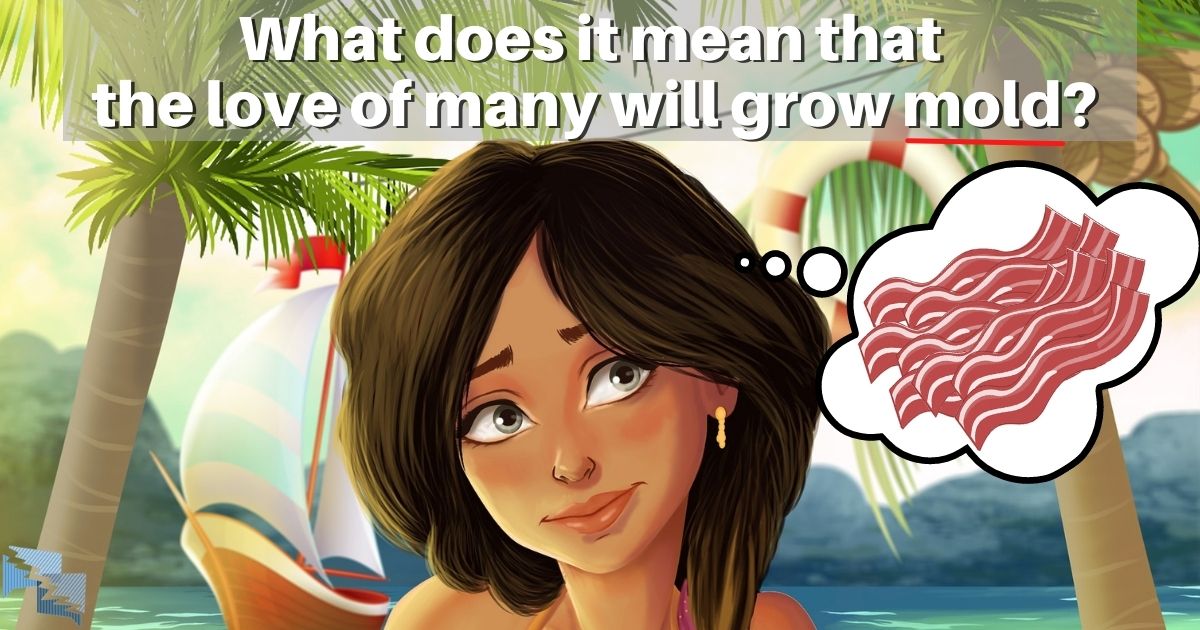
What does it mean that the love of many will grow mold?
A new Bible commentary has posited that the words we use for different types of love in the Greek are in error. Instead of agape, eros, storge, and phileo, they offer these categories:
Xērós: Dry love is the kind of love many men show for their families. They go to work and make money, but they aren't very demonstrative. There's not enough moisture to grow mold.So, is this new Bible commentary accurate? Not really. They may be good metaphors but relating the purity and amount of love to different qualities of water isn't biblical. And it doesn't work with northern climates. If the kids' site editor were to compare her love for bacon with a river in Montana, I wouldn't think of purity. I'd think her love had gone cold.
Glukoú neroú: Freshwater love is pure and clean, like the love a young girl has for her horse or our senior editor for the Royals. It has no contaminants that would cause mold.
Uphálmuros: This is brackish love. You see this when you think your grandpa has glukoú neroú or even xērós for your grandma and then you accidentally find his love letters and realize, nope!—his love for her is quite salty. Mold can't grow with all that salt. Wow.
Koresména: Fully saturated love is the kind you see with a mother to her newborn or a honeymooning couple or the love I have for Lala's gif comments on Facebook. So much love nothing can contaminate it.
Ugrós: (I swear, I'm not making this up.) This is soggy love. It's enough love to make sure things flow smoothly, but not so much that it can cover everything. Also known as "schmoopy," "gooey," and "sappy" love. The kind of love our bookkeeper has for her new printer. Between the high sugar content and the exposure to air, this is the type of love that can grow mold.
This is what WOULD happen if GotQuestions.org genuinely, honestly answered all the mis-typed, autocorrected, or otherwise altered "spiritual" questions that come their way every day.
HOME | ABOUT | CATEGORIES | CONTACT | THE REAL SITE
© 2024 Got Questions Ministries. All rights reserved.

